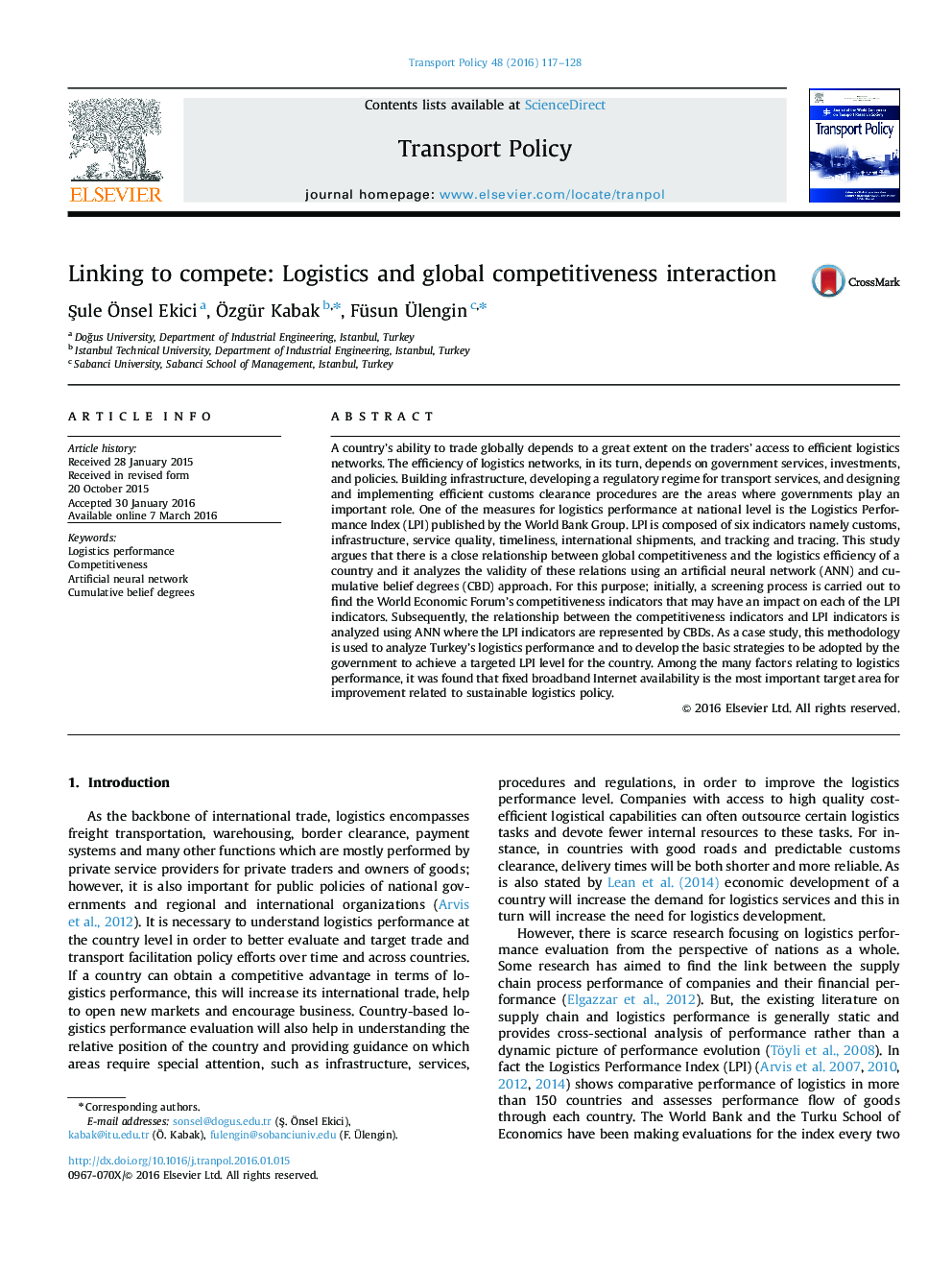| Article ID | Journal | Published Year | Pages | File Type |
|---|---|---|---|---|
| 1064719 | Transport Policy | 2016 | 12 Pages |
•We argue the close relationship between competitiveness and logistics performance.•We underline that there is a strong relationship between the WEF and LPI indicators•We analyze this relation using artificial neural network and cumulative belief degree.•As a case study, the methodology is used to analyze Turkey’s logistics performance.•We develop strategies to be adopted to achieve a targeted logistics performance.•We find that fixed broadband Internet is the most important area for Turkey.
A country’s ability to trade globally depends to a great extent on the traders’ access to efficient logistics networks. The efficiency of logistics networks, in its turn, depends on government services, investments, and policies. Building infrastructure, developing a regulatory regime for transport services, and designing and implementing efficient customs clearance procedures are the areas where governments play an important role. One of the measures for logistics performance at national level is the Logistics Performance Index (LPI) published by the World Bank Group. LPI is composed of six indicators namely customs, infrastructure, service quality, timeliness, international shipments, and tracking and tracing. This study argues that there is a close relationship between global competitiveness and the logistics efficiency of a country and it analyzes the validity of these relations using an artificial neural network (ANN) and cumulative belief degrees (CBD) approach. For this purpose; initially, a screening process is carried out to find the World Economic Forum’s competitiveness indicators that may have an impact on each of the LPI indicators. Subsequently, the relationship between the competitiveness indicators and LPI indicators is analyzed using ANN where the LPI indicators are represented by CBDs. As a case study, this methodology is used to analyze Turkey’s logistics performance and to develop the basic strategies to be adopted by the government to achieve a targeted LPI level for the country. Among the many factors relating to logistics performance, it was found that fixed broadband Internet availability is the most important target area for improvement related to sustainable logistics policy.
